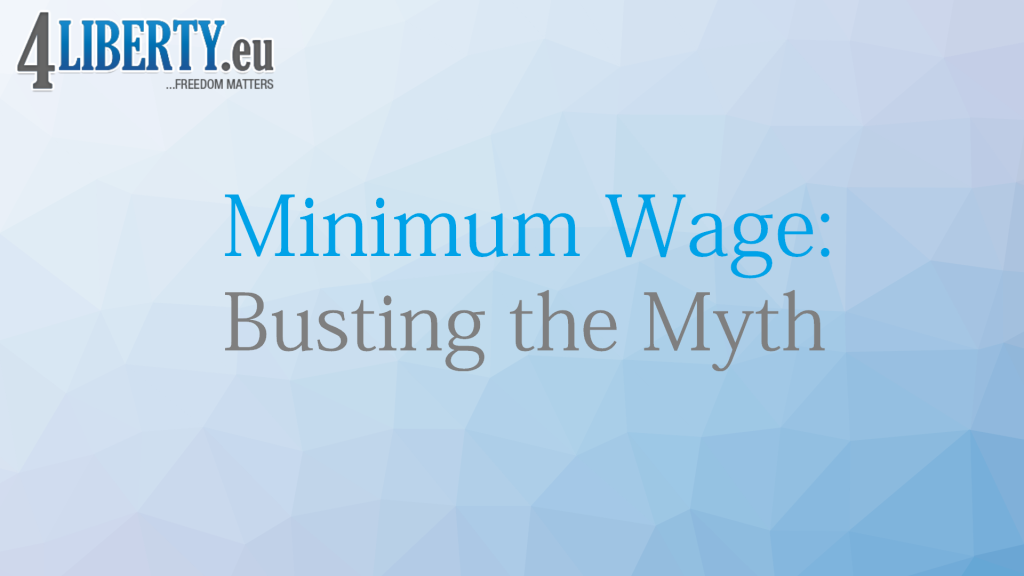We have the pleasure the present you one of the series of our policy papers that we will be publishing in the near future. The publication discusses the impact of minimum wage on the economy of six Eastern European countries. Enjoy your reading!
Executive Summary
For decades governments have been enforcing minimum wage laws, prohibiting employers from paying wages below a mandated level.
The policymakers introducing minimum wage laws claim such laws are conducive to the betterment of especially low-skilled and entry level workers, minorities, youth and the unemployed. A minimum wage then ought to be a cure for poverty and income inequality. According to public opinion polls all over the world, the public predominantly believes these claims and, therefore, supports a minimum wage.
In reality—and as the economic literature attests—minimum wage laws in most cases end up harming the work force and the broader economy by suppressing job opportunities, especially for low-skilled and entry level workers, minorities, youth and the unemployed – the groups promised to be helped by these policies. As a matter of fact, minimum wage laws do not create any new resources and, hence, do not create new jobs, spur economic growth or raise wellbeing. As such, the negative impact of a minimum wage on the workforce as well as on the economy as a whole grows with the size of the gap between labor productivity and minimum wage. Indeed, not all that glitters is gold.
This policy analysis reviews economic models used to study the impact of minimum wage laws and examines by way of empirical evidence the impact of a minimum wage on six Eastern members of the European Union (Czech Republic, Hungary, Lithuania, Poland, Slovakia and Slovenia).
To conclude, instead of blindly sticking to minimum wage laws—an ineffective policy pushing a considerable number of people into unemployment and damaging today’s still sluggish economy—the governments should focus on policies generating economic growth, which would facilitate higher labor productivity and wages for all workers, not just a tiny fraction above the minimum wage.
Download the full publication in pdf here: Minimum_Wage.pdf



